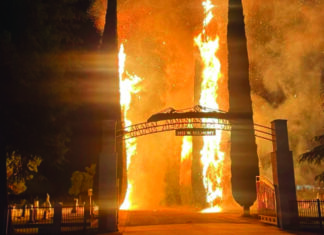WASHINGTON — On April 24, President Barack Obama released a statement on the Armenian Genocide which again failed to use the word “genocide.”
As a senator and presidential candidate, Obama pledged “As President I will recognize the Armenian Genocide.” Now President Obama avoided his commitment to utilize the word “genocide” and instead characterized the historical reality as “one of the worst atrocities of the 20th century” and “the terrible events of 1915” yet again.
He said, in part, “On this solemn day of remembrance, we pause to recall that ninety-five years ago one of the worst atrocities of the 20th century began. In that dark moment of history, 1.5 million Armenians were massacred or marched to their death in the final days of the Ottoman Empire.
“Today is a day to reflect upon and draw lessons from these terrible events. I have consistently stated my own view of what occurred in 1915, and my view of that history has not changed. It is in all of our interest to see the achievement a full, frank and just acknowledgment of the facts. The Medz Yeghern is a devastating chapter in the history of the Armenian people, and we must keep its memory alive in honor of those who were murdered and so that we do not repeat the grave mistakes of the past.”
Earlier this month, the Armenian General Benevolent Union, the Diocese of the Armenian Church (Eastern), the Diocese of the Armenian Church (Western) and the Armenian Assembly of America in a joint statement urged Obama to use the English term rather than employ the Armenian term for the Genocide in his April 24 statement. Obama’s reaffirmation of the Genocide, the joint statement also said, can only help to heal the wounds of denial and bring Turkey one step closer toward true reconciliation.
In March, the House Foreign Affairs Committee, under Chairman Howard Berman’s (D-CA) leadership, passed the Armenian Genocide Resolution, which sets the stage for passage by the full House.









